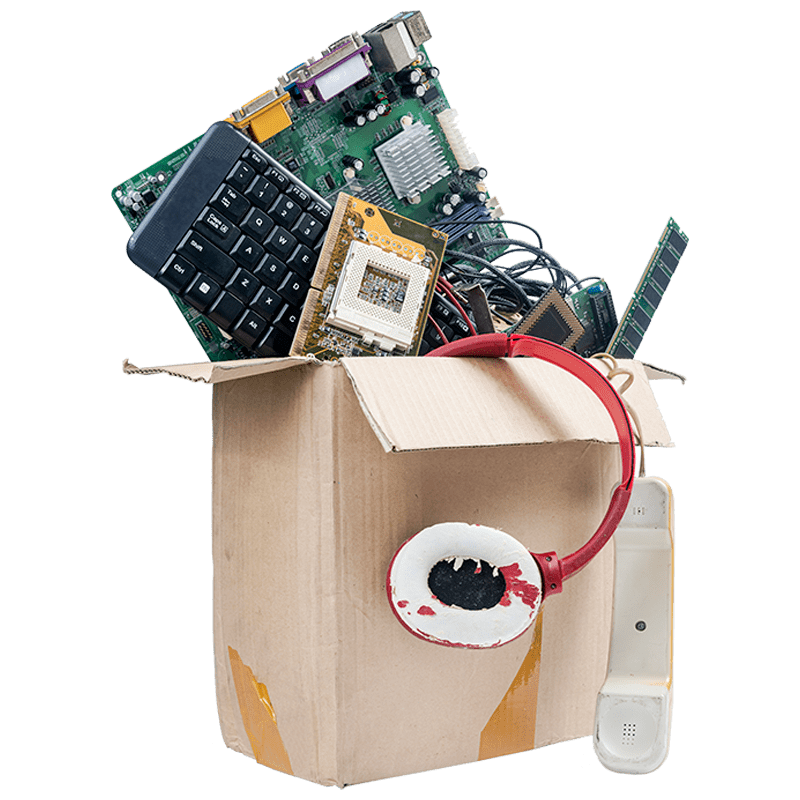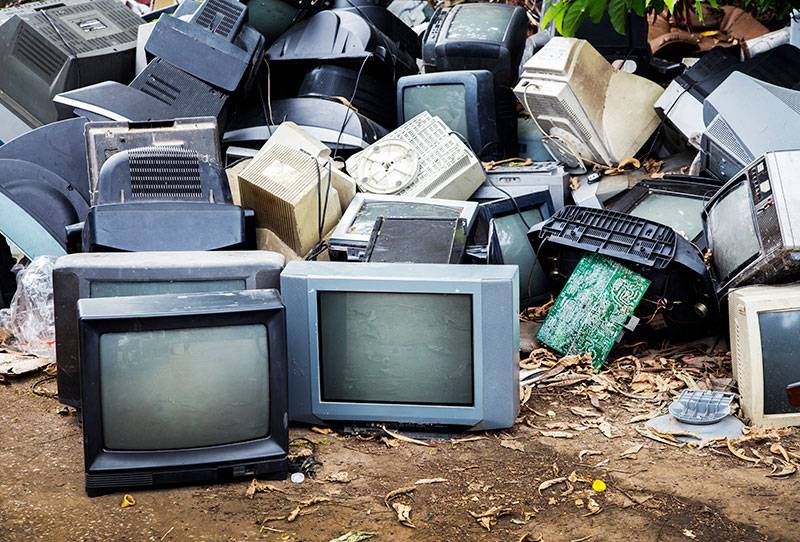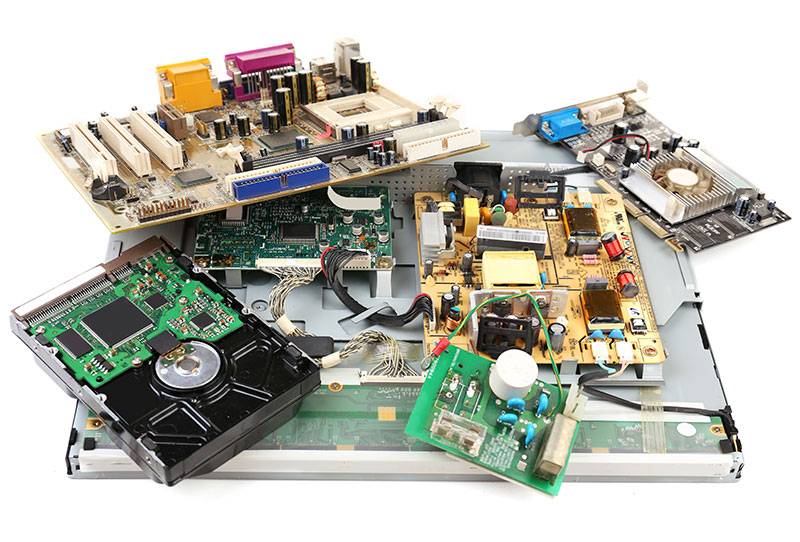E-Waste Crisis
According to The Global E-Waste Statistics Partnership, in 2022, the U.S. generated about 7.18 million tons of e-waste and recycled about 4.05 million tons, at about a 56% recycling rate. Globally, we generated about a record 62 million tons of e-waste in 2022, Up 82% from 2010. The global e-waste recycling rate stands at a shocking 12.5%!

Addressing the E-Waste Crisis
While advances in technology continue to improve and enrich our lives, product life cycles are getting shorter and shorter. This means there’s an increasing amount of outdated electronic equipment that needs to be recycled properly. When discarded, much of this equipment ends up in U.S. landfills or is exported to developing countries. In fact, 80% of e-waste in the US and most other countries is transported to Asia.
The USA dumps between 300 to 400 million electronic items per year.
E-waste is one of the fastest-growing waste streams in the world.
Although e-waste represents only about 2% of the total waste in American landfills, it accounts for approximately 70% of the nation’s overall toxic waste.

Electronic equipment contains harmful toxins that can contaminate drinking water, soil, and the atmosphere when released into the environment. Lead, mercury, cadmium, and flame-retardants are all persistent bioaccumulative toxins (PBTs) that cause birth defects and damage coronary, respiratory, nervous, and skeletal system function.

A single computer or television monitor (32-inch CRT) contains an average of 6.6 pounds (3 kgs) of lead.
Monitor glass by weight contains roughly 20% lead. When this glass is crushed in a landfill, the lead leeches out into the groundwater.
Just 1/70 of a teaspoon of mercury is enough to contaminate a 20-acre lake, rendering the fish inedible.
In the US, municipal incineration of electronic waste is the largest source of cancer-producing dioxins and is among the largest sources of heavy metal contamination in the atmosphere.
While there are many ways to dispose of unwanted electronics, there are few guarantees that the resulting electronic waste will be disposed of responsibly. Read more about how GreenCitizen is working to change the way electronics are discarded. You can schedule a business pickup or drop-off your electronics at our Burlingame EcoCenter below.
Recycle Your Electronic Waste Today!
Mail-In Electronics Recycling
Use our Mail-In Electronics Recycling service to send us electronics from anywhere in the USA
Green Directory
Our Green Directory helps you locate a recycling center near you in just a few clicks.
